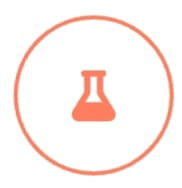CI, CD and DevOps have taken over the software development world by storm. Most companies today realize that the practices of continuous integration (CI) and continuous delivery (CD) will yield tremendous benefits like increased business revenue and faster time-to-market. The demand for these skills has been steadily rising over the last few years.
There are a plethora of tools available in the CI/CD/DevOps landscape today. Implementing continuous integration, continuous delivery and continuous deployment with these tools and frameworks can help us immensely in modernizing our software development lifecycle. It catches us bugs early and increases the quality of our software products. This, in turn, reduces the overall cost for software development in startups and enterprise alike.
DeepNeuron DevOps course has been designed keeping in mind the latest industry needs. You will be trained on the following skillsets which have been curated based on job descriptions posted by companies looking for DevOps Engineers. In this DevOps online course, you will learn the following aspects:
But before getting into tools and frameworks, it is important that you get a holistic picture of CI / CD and DevOps. For this, you need to understand where we started from - the old school traditional software development cycle. We will pick holes in the old model, identify pain points and learn how CI / CD and DevOps evolved, one step at a time. Once you build a rock solid foundation using this course, you can move on to more specific tool oriented courses.
If you are thinking about moving on to CI/CD/DevOps from your old school software development model, this course is for you. Well illustrated with animations to help you grasp a clear understanding of the underlying principles. Once you complete this course, you can take on bigger challenges related to implementation. The demand for professionals who have experience with CI/CD/DevOps has been growing steadily over the last few years. The salaries for these skills have gone through the roof and are only bound to go up as the demand for these skills increases. Professionals with CI / CD / DevOps skill set can demand as much as $150K as their yearly compensation as per latest US job and salary surveys. And this is where you start!
- In-depth knowledge of DevOps methodology
- Implementing Software Version Control
- Containerizing Code on production using Docke
- Creating CI/CD Pipelines using Jenkins
- Configuration Management using Puppet and Ansible
- Automating build and test using Selenium and Maven
- Container Orchestration using Kubernetes
- Performance Tuning and Monitoring using Nagios























